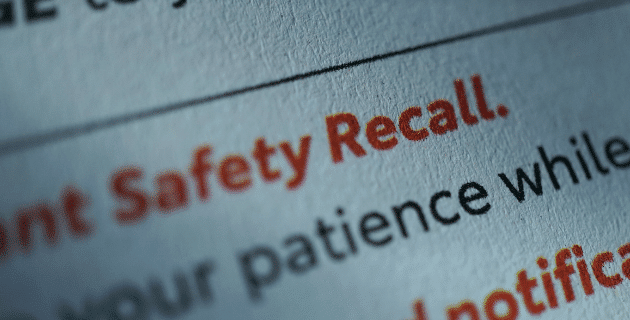We want our cars to be safe and reliable, yet sometimes, parts malfunction. When it’s a defect that creates a safety risk, the automaker is responsible for fixing it. That’s when you get an auto recall notice. These notices inform car owners that something needs to be adjusted or replaced to make their vehicles safe to drive.
How common are recalls?
Recalls happen all the time. In 2020, there were nearly 900 safety recalls affecting 55+ million cars and equipment, according to the National Highway Traffic Safety Administration (NHTSA), the government agency responsible for exploring safety complaints. NHTSA looks at safety issues, both large and small. If the car doesn’t meet the minimum safety standard, automakers are required to announce a recall. The recall is usually for a specific make and model. The vehicle manufacturer is legally obligated to inform buyers and cover the costs of repairs. Even so, only about 75% of vehicles recalled in a given year are ever fixed, according to NHTSA.
Note: There is a time limit on recalls, usually 8 years. A repair after that timeframe usually means you have to cover the cost.
Why might my car be recalled?
Recalls affect parts of the car that could cause an immediate safety hazard. They could be small or large, and include airbags, tires, brakes, engines, and electrical components. They would not, however, include air conditioners, radios, or ordinary wear and tear. One recall that occurred this past year was for the seat belt in a Ford Motor F-150 Super Cab. The belt was installed incorrectly and as a result, didn’t provide enough restraint in the event of a crash. Takata airbags again surfaced this year as NHTSA looked at 20+ automakers who used the potentially explosive bags. Other 2021 recalls were for brake issues, hood problems, battery fire hazards, and diesel engine stalling, according to Car and Driver.
Why do people sometimes ignore recalls?
It may be because they are not aware of the recall. Perhaps the notice was mailed to an old address and not forwarded. Maybe they think it will take too much time or effort, or they could be without a car. Finally, they simply may not care.
Why should I pay attention?
It’s easy to ignore recall notices. Don’t. Even a small defect can put you in a life-threatening situation. Plus, ignoring a recall can affect your insurance. If you’re involved in an accident and the faulty part is the cause, you might not get reimbursed for repairs or for medical costs.
How do I know if my vehicle has been recalled?
If you’re the original owner of the car, you should get a recall notice in the mail. If you take your car in for regular maintenance at the dealership, you also should be notified. If, however, you purchased the vehicle as a used car, and you get your car serviced at a local mechanic, you may not be aware of a recall. It’s easy to check, however. Visit the NHTSA recalls website and input your vehicle identification number (VIN). You’ll find this 17-character number on the lower left of your car’s windshield, on the inside of your driver’s side door, or on your registration or insurance documents. Not only can you check car recalls, but you can find recalls on child car seats and tires. You can also download the app to your phone and get alerts.
What do I do if I get a recall notice?
If your car is recalled, contact the dealership and schedule a repair as soon as possible. Ideally, the dealership will provide a loaner car but if not, you may qualify for a rental car with your auto policy or be reimbursed. If the dealer gives you a rental car while yours is being repaired, you’ll want to verify that you have the right insurance coverage for a loaner. Finally, if you already fixed the defect before you learned about the recall, you can get reimbursed from the dealership.
Recalls keep us safe. Other ways that you can stay safe are to wear seat belts, practice defensive driving techniques, and maintain and insure your vehicle. After all, your car is one of your greatest investments. Safe travels.
This article is furnished by California Casualty, providing auto and home insurance to educators, law enforcement officers, firefighters, and nurses. Get a quote at 1.866.704.8614 or www.calcas.com.
- Graduation – When to Remove Your Child from Your Auto Policy - May 18, 2023
- How to Prevent Catalytic Converter Theft - May 17, 2023
- How Much Does Home Insurance Cost? - May 17, 2023


Who besides NHTSA handles recalls when auto mfg won’t put all cars affected on recall? VW recall 34J6 has many vehicles that are not drivable because of recall reason. Facebook page, Justice for VW Hybrid Jetta owners 2013-2015. NHTSA has tons of complaints but will not open their own investigation.